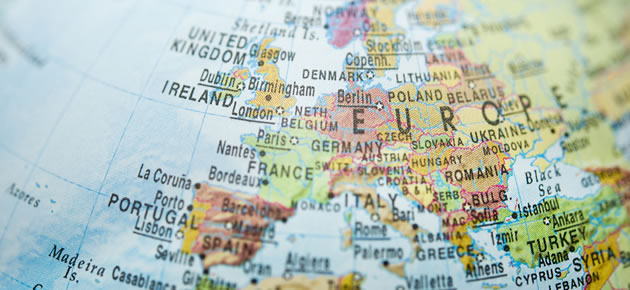Yesterday the Euro to NZD pairing hit a seven-week low as the diverging attitudes of the European Central Bank and Reserve Bank of New Zealand took a toll on the Euro.
While the RBNZ is in the process of raising interest rates the ECB is considering introducing additional stimulus when it meets next month.
The Euro held declines against the ‘Kiwi’ during the European session as a report revealed a decline in industrial production in the Eurozone.
The 0.3 per cent monthly drop was expected, but the year-on-year decline of 0.1 per cent was an unpleasant surprise.
Also weighing on the Euro was the fact that the German central bank is willing to support the ECB’s revised stimulus plan.
Furthermore, yesterday the International Monetary Fund asserted that it sees a 25 per cent chance of the Eurozone experiencing deflation before the end of next year.
During Australasian trading New Zealand’s performance of manufacturing index gave a reading of 55.2 for April.
While this was down from 58 in March, and less than forecast, the measure remained well above the 50 mark separating growth from contraction.
The increased amount of national holidays in the period is believed to have contributed to the slowdown.
In the view of Business New Zealand economist Doug Steel; ‘Buoyant construction and agriculture sectors look supportive on the demand side.’
The ‘Kiwi’ was little affected by the report.
On Thursday the Euro put on a patchy performance as investors digested a mixed bag of growth reports for the Eurozone’s largest economies.
While the German economy expanded by more than anticipated in the first quarter of the year, the French economy stagnated and the Italian economy posted unforeseen contraction.
The marked difference between the stability of the Eurozone’s two heavy weight economies, Germany and France, is now becoming a serious cause for concern.
As economist Alexander Koch notes; ‘Apparently, the divergence between the French and German economies is widening. While the preconditions for solid expansion are better in Germany than in other countries, slowing fiscal consolidation and an improving labour market point to an increasing convergence and broadening in Eurozone growth’.
The EUR/NZD pairing shed 0.45 per cent after the data was published.
As the day continues further Euro to New Zealand Dollar movement could occur as a result of Eurozone growth and final inflation figures.
Euro (EUR) Exchange Rates
[table width=”100%” colwidth=”50|50|50|50|50″ colalign=”left|left|left|left|left”]
Currency, ,Currency,Rate ,
Euro, ,US Dollar,1.3691,
,US Dollar,1.3691,
Euro, ,British Pound,0.8171,
,British Pound,0.8171,
Euro, ,Australian Dollar,1.4585,
,Australian Dollar,1.4585,
Euro, ,New Zealand Dollar,1.5776,
,New Zealand Dollar,1.5776,
Euro, ,Canadian Dollar,1.4846,
,Canadian Dollar,1.4846,
[/table]



